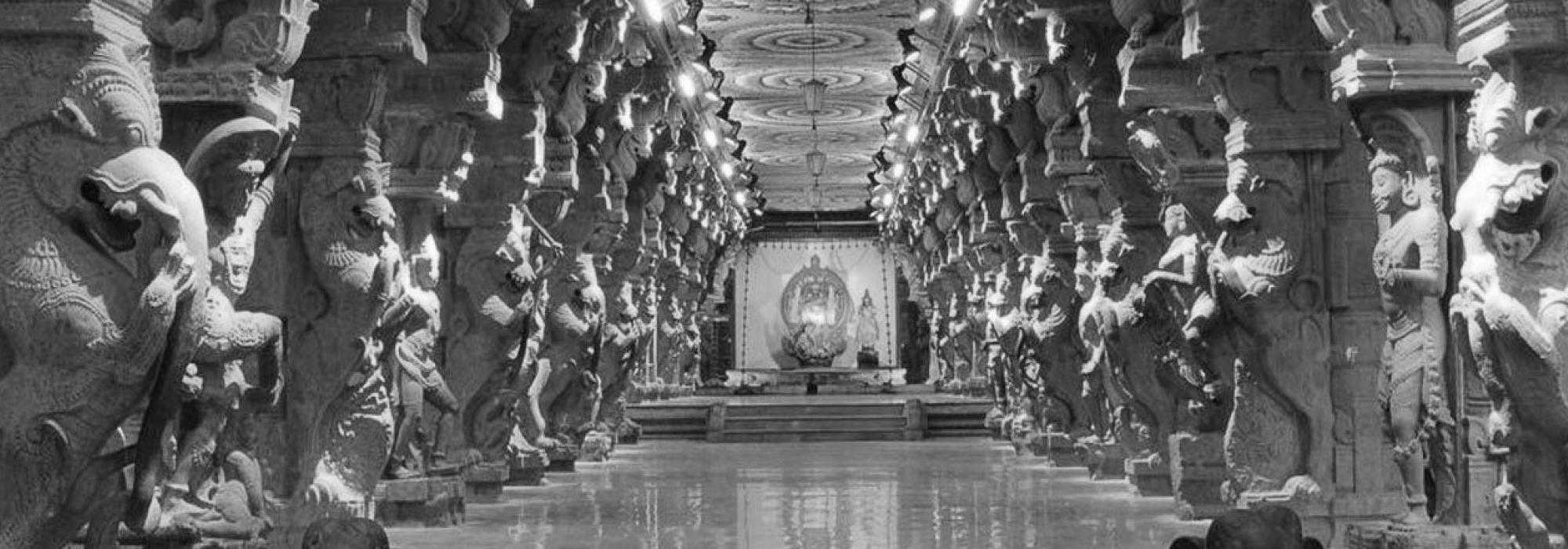हृदि तरसा विदितरसा तदितरसाहित्यवाङ्न मे लगति |
कविलोके न विलोके भुवि लोकेशस्य शाहजेरुपमाम् ||
Vāñcheśvara was the great-grandson of Govinda-dīkṣita. He was also called ‘Kuṭṭi-kavi’ (‘Little poet’), and there is an interesting anecdote behind this nickname. Shahaji was a famous king, who belonged to the family of the Bhosles, who ruled over Tanjavur in the 18th century. He was a scholar and a poet himself. The village of Tiruvīśanallūr gave birth to a big community of scholars under his patronage, and it was here that Vāñcheśvara grew up. He once accompanied his father on a trip to Madurai, along with Shahaji’s family. The king, looking at the Goddess Mīnākṣī, was overcome with devotion and prayed in these words:
“पुरि मधुरं गिरि मधुरं गरिमधुरं धरनितम्बभाराढ्याम् |
स्थूलकुचं नीलकुचं बालकचन्द्राङ्कितं तेजः ||”
The little boy Vāñcheśvara, who was present there with his father, was inspired by the verse composed by the king, and he too composed a ‘gīti’ extempore, with the same kind of rhyme and same alliterative pattern:
“No poem other than this one, filled with rasa-bhāva, comes to my mind immediately. I cannot think of another person who can match King Shahaji in the realm of poets.”
The king appreciated the lad who had composed such a fine verse with lyrical melody and gave him the title ‘The Little Poet’(‘Kuṭṭi-kavi’). It was the same person who later composed the satirical poem called the ‘Mahiṣa-śataka’ (a hundred verses on a buffalo), which has made him immortal. He was known as the king of puns.
Adapted from Kannada by Arjun Bharadwaj
(The original article is from the anthology Kavitegondu Kathe.)















































